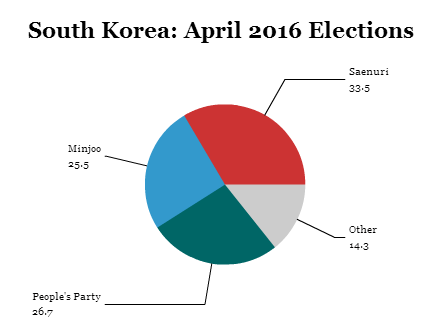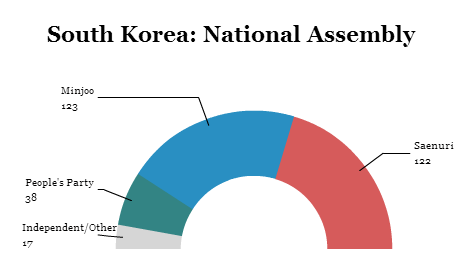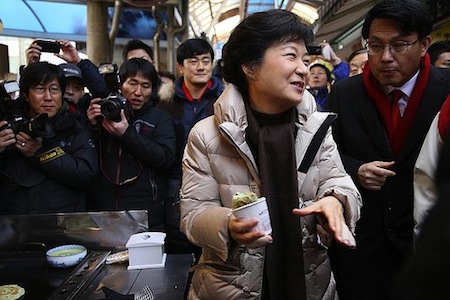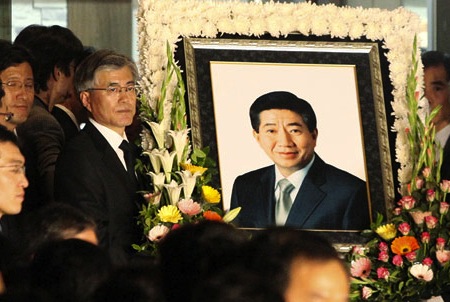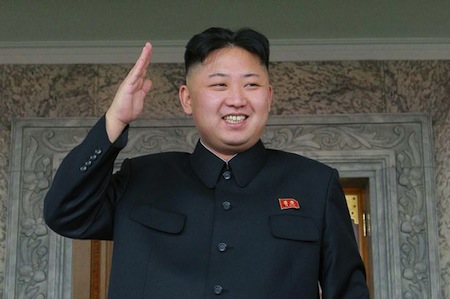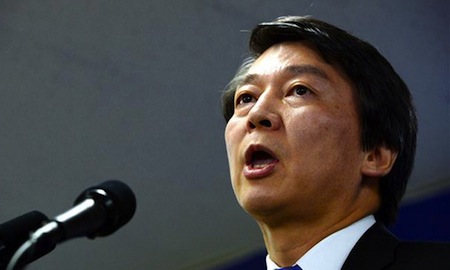
When Moon Jae-in (문재인) won his party’s nomination last Monday, news outlets across the globe immediately proclaimed that the progressive’s nomination all but assured Moon’s victory in the snap presidential election set to take place on May 9. ![]()
Nevertheless, the next 27 days promise to be some of the most tumultuous in the history of South Korean democracy, with former president Park Geun-hye (박근혜) under arrest on bribery and other corruption charges and with US president Donald Trump’s administration taking an increasingly bellicose line over North Korea’s nuclear provocations. Park’s removal from office brought forward the presidential election previously scheduled for December.
Last week’s primaries among all of South Korea’s major parties have effectively settled the presidential field. Almost immediately, though, Moon’s opponents started lining up behind another progressive alternative — former software engineer and entrepreneur Ahn Cheol-soo (안철수), who kicked off his general election campaign by taking a ride on Seoul’s subways. The hint wasn’t subtle: Ahn is an outsider who understands the problems of everyday Koreans.
It set off an election dynamic that polls say, all of a sudden, is now too close to call.

The sudden Moon-Ahn horse race elevates a long-simmering rivalry that’s defined the South Korean opposition for the better part of the 2010s. Moon and Ahn both hold relatively left-wing views by the standards of South Korean politics. But Ahn is increasingly viewed as more pro-American, given Moon’s skepticism about the US-built Terminal High Altitude Area Defense (THAAD) anti-missile system that North Korea and China view as an American provocation. While both Moon and Ahn previously opposed THAAD, which could deploy within weeks, the two candidates are now voicing at least qualified support for its deployment if North Korea’s aggression continues. But Moon has warned that THAAD’s deployment should be halted if North Korea resumes negotiations and freezes its nuclear weapons program.
More broadly, South Korean business elites like that Ahn comes from an entrepreneurial background. Idealistic voters, meanwhile, consider Ahn an untainted maverick who can break the cycle of corruption that’s dogged several administrations from both the left and the right and the ‘chaebol’ conglomerates than dominate the South Korean economy. (Notably, Samsung CEO Jay Y. Lee (이재용) was arrested in February as a result of the wide-ranging corruption scandal that engulfed Park’s presidency, accused of paying up to $40 million in bribes to Park in exchange for favorable treatment for Samsung).
At a stunningly rapid clip, Ahn has defined himself as the outsider to Moon’s insider. In addition, with the Korean right in shambles after Park’s implosion, many conservative voters — for now at least — seem to prefer a strategic vote for Ahn instead of a more right-wing candidate. Continue reading Snap South Korean presidential election points to tough Moon-Ahn race

